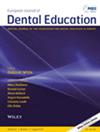Generic Competencies in Dentistry: Students' and Teachers' Perceptions of Their Professional Relevance and Their Development in Undergraduate Studies at Universidad Diego Portales of Chile
Abstract
Introduction
Generic competencies are transferable skills, knowledge and attitudes essential for personal and professional development and not restricted to any particular field. Evidence shows the relevance of incorporating them into the dentistry curriculum. However, defining which competencies to prioritise is complex and requires input from the academic community. This research aimed to understand the perception of dentistry students and teachers at Universidad Diego Portales regarding the importance of generic competencies in the profession and their development during undergraduate studies.
Materials and Methods
74 teachers and 256 students participated, representing 55% of the study population. The Tuning Latin America project's generic competencies questionnaire was used, assessing 27 competencies in terms of relevance, ranking, and development.
Results
A positive perception regarding the importance of generic competencies was observed, with over 90% of participants considering them quite or highly relevant. When ranking, five skills stood out: three from the learning process, one from social values, and one from interpersonal skills. Regarding the development of such skills, both teachers and students expressed that many competencies were not well implemented; over 50% of participants considered 14 of the presented skills as poorly developed or not developed at all.
Discussion
Each programme must select generic competencies for their students' training, as this definition varies according to the consulted group and country.
Conclusions
Both teachers and students recognised the professional relevance of generic competencies in dentistry. Both groups perceived that many were not adequately developed in the curriculum.

 求助内容:
求助内容: 应助结果提醒方式:
应助结果提醒方式:


